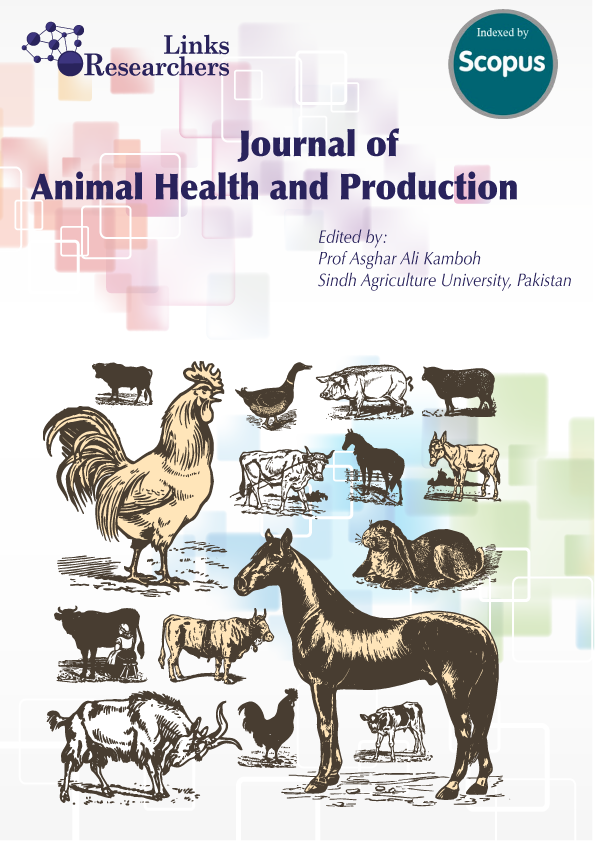Effects of Heat Stress on Some Productive and Histological Traits in Broiler Feed 3% and 5% Mint Powder Supplement
Effects of Heat Stress on Some Productive and Histological Traits in Broiler Feed 3% and 5% Mint Powder Supplement
M.J.Al-Saadi*, Jassim E.Q.Al-Musawi
ABSTRACT
Thermal stress is considered the greatest important environmental challenge due to the gradual and fast increase in mean global temperature. The current study was designed to estimate the therapeutic role of dried mint leaves powder in the diet of broiler chicken exposed to thermal stress on production and histological parameters. Broiler chickens (n= 160, Ross 308) were divided randomly into four groups first one was the negative control group which kept without exposure to heat stress or mint treatment, while groups 2-4 kept under heat stress. Group 2 kept under heat stress but without mint treatment, while the groups 3 and 4 exposed to heat stress accompanied with treatments of 3% and 5% peppermint leaves powder respectively in the diet. The experiment lasted for 35 days. Results revealed that the negative control group, as well as both the 3% and 5% mint-supplemented groups, exhibited significantly (P<0.05) higher feed intake, body weight, ALT, and AST levels compared to the positive control group, which showed significantly (P<0.05) lower levels. In contrast, the positive control group showed a significantly (P<0.05) higher cortisol hormone level compared to all other treated and negative control groups. In the histological examination of the liver and small intestine, all treated groups exhibited normal organs without adverse gross or microscopic changes, while the positive control group that exposed to heat stress without mint treatment, showed macroscopic and microscopic deleterious alterations, especially in the livers. The livers displayed swelling, congestion, paleness, edema, and enlargement with rounded edges in a gross examination. The small intestine showed congestion of blood vessels with petechial hemorrhages and appeared pale to whitish in color. Based on the current results, it can be concluded that using dried peppermint powder in the diet of broiler chickens exposed to thermal stress has positive effects in preventing the various deleterious effects of heat stress, especially when used at a 5% mint leaves percentage.
To share on other social networks, click on any share button. What are these?





